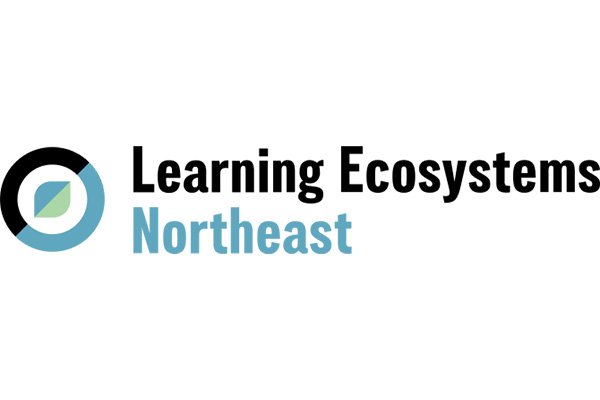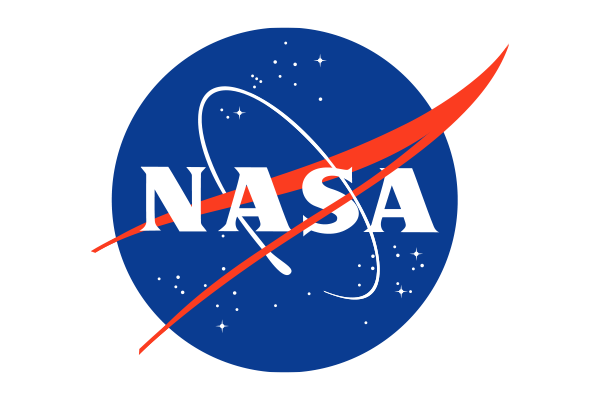Spring Learning Theme: Vernal Pools
2023 Vernal Pool-ooza!
Get excited for a magical sign of spring: vernal pools! Brimming with life and essential to forest ecosystems, these extraordinary places provide a rich context for learning about ecosystems, climate change, seasons, and developing a connection to nature. This spring we are highlighting a variety of pathways for youth to engage with vernal pools, in schools, in communities, and beyond and we are connecting the adults in these spaces with each other and resources to support learning. Photo credit: Brenna Crothers.
Project Goals:
- Build background knowledge related to vernal pools and climate change.
- Experience learning around vernal pools that can be applied in formal and informal learning environments.
- Gather resources from NASA to support data and climate learning.
- Build comfort with gathering, contributing, analyzing, and sharing data.
- Connect with practitioners and learning experience designers in your area and across the region supporting learning around vernal pools in and out of school.
- For youth to develop STEM practices, concepts, and agency through place-based learning experiences in connection with other youth, community members, and professional scientists.
'Tis the season
In the early spring, vernal pools brim with life. They provide food for birds, mammals, reptiles, and other amphibians spring through fall. Hearing the sounds of a vernal pool as you wander the woods can be a life changing moment. Climate change is affecting spring temperatures and patterns of precipitation, and the impact on vernal pools is not well understood.
This spring we’re working to bring youth and educators together through the magic of vernal pools to help us understand how the species that rely on these pools are responding to climate change. Learn about and experience different ways this phenomenon can show up in learning experiences for youth no matter what learning context they are in.
Through our network of organizations, practitioners, and learning experience designers, we offer a mixture of virtual and in person experiences to meet you where you are in your journey of learning about and exploring all that vernal pools have to offer.
Check back often for updates!
We have compiled a list of opportunities that you can pick and choose from but the list will be continually updated. You can take as little or as much as you wish, mix and match, it is a buffet, a Vernal Pool-ooza!
Educator information sessions
Each virtual session below will be offered at two different times to accommodate a range of schedules and recordings will be shared afterwards:
- Vernal Pool Background Building: A 90 minute virtual session around building background knowledge, discussing connections to climate science, and going through example activities to support youth learning around vernal pools.
- Vernal Pool Community Science Challenge Info Session: Join us on March 21st, from 11:30–12:30 p.m. or from 3:30–4:30 p.m. Through community science, youth can build understanding of vernal pool ecosystems while contributing to ongoing vernal pool research efforts. Join this session for information for resources to support learning through community science, confidence in supporting students in carrying out the project protocols, excitement for community science, and connections to a network of educators and project staff to support you.
- Scientific Observation, Writing, and Vernal Pools: Join us on April 6th to learn about ways to support students in looking closely and communicating their vernal pool observations. Observations can be submitted for publication in Findings from the Field, a middle school science journal. Learn more and register here.
Virtual events for youth
- Scientist To Go: On May 2nd, connect youth with environmental scientist and ecologist Greg LeClair as he discusses his wildlife research adventures from endangered turtles to mass salamander movement in vernal pools. Following a 20 minute presentation, youth will have the opportunity to ask questions and share their own experiences.
- Vernal Pool Community Science Challenge: On April 24th, join hundreds of students and educators from across the northeast as we collect and contribute data on impacts of climate change on key vernal pool species. This challenge includes a virtual information session for educators, opportunities for educators to practice protocols in a local(ish) vernal pool, and opportunities for youth to connect to the lead project scientists before and after contributing data.
- POSTPONED The Secret Pool with Kim Ridley: virtual read-aloud and author talk: Join us on (TBD) to experience the magic of vernal pools with the author of the award-winning children's book, The Secret Pool. Join this virtual read aloud for children and families from your local library, classroom, or from home.
Local and Statewide Events
Statewide
- Maine Big Night: Amphibian Migration Monitoring (MBN): This event is a community science project where anyone can participate in collecting important data on migrating frogs and salamanders while directly influencing their conservation outlook. The project occurs every April and has over 300 locations statewide.
- Email Greg LeClair for more information.
- Roads, Rain, and a Couple Thousand Amphibians: Call it a Big Night!: Join our webinar on March 17th from 6:30–8:00 p.m. to hear from Greg LeClair about how we can protect amphibians migrating across our roads this spring.
- Learn-Discover-Grow Series: Maine Big Night: Join us on March 28th at 7:00 p.m. on Zoom with guest speaker Greg LeClair to learn about a community science project focused on gathering data on and protecting migrating amphibians in Maine.
Aroostook County
- Spring 2023 Vernal Pool Community Science Challenge: Join us on April 26th, 4–6 pm at Aroostook National Wildlife Refuge in Limestone for this in-person vernal pool experience for educators. The event is hosted by the Aroostook County Connected Learning Ecosystem.
- Email Molly Auclair for more information.
- Salamander and Frog Walk: Join Friends of Aroostook National Wildlife Refuge on Friday, May 5th, at 8:30 pm at the refuge's visitor center to see and get your hands on some of the beautiful salamanders and frogs that breed in the small refuge ponds.
Hancock County and Midcoast Maine
- Spring 2023 Vernal Pool Community Science Challenge: Join us on April 13th, 4:30–6:30 pm at Bucksport Middle School for this in-person vernal pool experience for educators. The event is hosted by the Hancock/Midcoast County Connected Learning Ecosystem.
- Email Molly Auclair for more information.
- Vernal Pool Exploration: Join Bonnie Potter at the Hidden Valley Nature Center on April 22nd, from 9:30–12 pm to learn about the amazing web of life that abounds in our vernal pools.
Southern Maine
- Spring 2023 Vernal Pool Community Science Challenge: Join us on April 10th, 4:30–6:30 pm at the Tatnic Woods Preserve in Wells for this in-person vernal pool experience for educators. The event is hosted by the Southern Maine Connected Learning Ecosystem.
- Email Molly Auclair for more information.
- Creative Community Conservation of Vernal Pool Landscapes: Learn about a new vernal pool conservation strategy from University of Maine professor Emerita Aram JK Calhoun in this virtual speaker event on March 16th from 12–1pm.
Washington County
- Spring 2023 Vernal Pool Community Science Challenge: Join us on May 4th, 4:30–6:30 pm at the Moosehorn National Wildlife Refuge, Edmunds Division for this in-person vernal pool experience for educators. The event is hosted by the Washington County Connected Learning Ecosystem.
- Email Molly Auclair for more information.
- 4-H SPecial INterest (SPIN) Club: Every Monday from April 24th to May 22nd at 2:30 pm, youth will explore local vernal pools and engage in experiential activities.
- Email Gabby Brodek for more information.
- May Storytrail, The Secret Pool: Join the Downeast Coastal Conservancy May 1st – May 31st for another year of the The Secret Pool”by Kimberly Ridley on their storytrail at Middle River Park. The Secret Pool introduces young readers to the wonders right underfoot as the voice of a vernal pool shares its secrets through the seasons, and sidebars provide fun facts on its inhabitants and the crucial role these small, often overlooked wetlands play in maintaining a healthy environment.
- Washington County Big Night: Join the Washington County location Big Night the weekends of April 15th and April 22nd (tentatively).
- Email Cathy at Downeast Coastal Conservancy for more information.
- Vernal Pool Exploration Evening with Downeast Lakes Land Trust: On April 28th from 6:00–8:00 pm, join the Downeast Lakes Land Trust to explore vernal pools and learn how to tell the difference between different egg masses and look for amphibians and invertebrates.
- Email Sarah Cote for more information.
- Vernal Pool Walk at the Vining Lake Community Preserve in Cooper: On April 30th, join the Downeast Coastal Conservancy as they host a vernal pool walk for the general community.
- Email Cathy at Downeast Coastal Conservancy for more information.
Western Maine
- Spring 2023 Vernal Pool Community Science Challenge: Join us on April 11th, 4:30–6:30 pm at the Smith Bridge Preserve in Oxford for this in-person vernal pool experience. The event is hosted by the Western Maine Connected Learning Ecosystem.
- Email Molly Auclair for more information.
- For Whom the Wood Frogs Croak: Join the Greater Lovell Land Trust on April 21st from 9:30–12 pm for a public walk to explore vernal pools at Kezar Corridor Lands and learn more about the amphibians who inhabit these places for only a couple of weeks each year.
The Vernal Pool Spring Learning Theme is a product of Learning Ecosystems Northeast (LENE), a NASA funded collaborative focused on building partnerships and pathways that provide youth with opportunities to engage in locally relevant climate connected learning experiences. Many in person events are being co-hosted by Connected Learning Ecosystems (CLE) that are part of the LENE network.

Molly Auclair
Contact Molly if you have any questions about Connected Learning Ecosystems.
Meggie Harvey
Contact Meggie if you have any questions about vernal pool community science challenges.
Project Sponsor
This material is based upon work supported by NASA under grant number NNX16AB94A. Any opinions, findings, and conclusions or recommendations expressed in this material are those of the author(s) and do not necessarily reflect the view of the National Aeronautics and Space Administration (NASA).
Read More
-
![The Value of Community Science]()
The Value of Community Science
We learn from experts about community science — scientific research and monitoring driven and controlled by local communities — and what makes it such an …
Perspectives
-
![Community Science Challenges: Fall 2022]()
Community Science Challenges: Fall 2022
We just wrapped up our community science challenges for the fall of 2022, where we saw 1725 students help contribute to real, ongoing research efforts. …
Announcements
-
![Learning Ecosystems Northeast (LENE): All Systems Go]()
Learning Ecosystems Northeast (LENE): All Systems Go
LENE is a network of peer communities where educators in local regions join forces, committed to empowering the next generation of climate stewards.
Announcements
-
![Oceans of Possibilities]()
Oceans of Possibilities
Experts from across GMRI are providing the Maine State Library system with resources and opportunities to support the 2022 summer reading theme: Oceans of Possibilities.
Tidings




